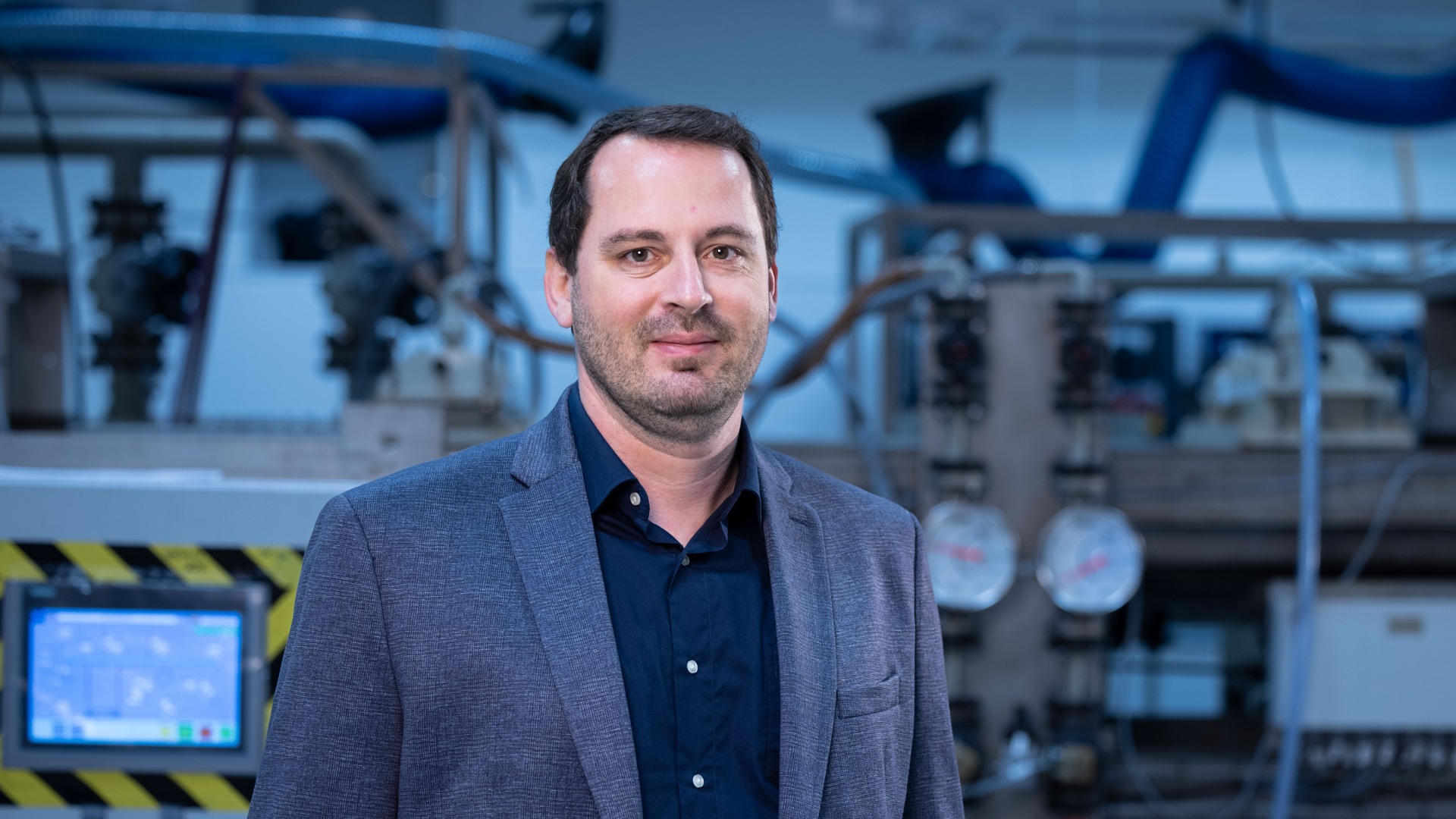
"The goal should be to utilise as much as possible"
Philipp Theuring started his career in science, helping solve water-related problems. Now, he develops business partnerships giving new life to critical raw materials extracted from sewage sludge ash.
06 Dec 2022The fact that EasyMining’s Ash2Phos technology can recover phosphorus from incinerated sewage sludge isn’t exactly a secret. It is, after all, in the name. But the process can, in addition, extract other valuable resources. Philipp Theuring knows that better than most. As Business Developer for EasyMining’s German office, it’s his job to create ways to bring those other recycled resources to the market.
That might seem like an unusual career choice for someone with a PhD in hydrology and water resources science, but the Berlin-based Theuring says it’s a perfect fit.
– Research is fun, but it’s not enough for me, honestly. I want to have a positive impact on the world, he explains. I like to focus on implementing projects that actually do something for the greater good.
From science to the business world
As a researcher from the mid-2000s to mid-2010s, Theuring assisted in the challenges of water management and catchment. His scientific career led him all over the world, from Mongolia to Africa, and even included a stint at the Royal Swedish Academy of Sciences. While finishing his postgraduate work at the University of Potsdam, he took a position at a company focusing on environmental monitoring technology and gained a taste for business development. Theuring joined EasyMining in 2021 and says he was intrigued by actually utilising, via circular economy, something he once considered a dilemma.
– With my background, I looked at nutrients more as a problem in the water systems, says Theuring. What I found fascinating about EasyMining is it's a completely different approach: Don't look at it as a problem. Look at it as an opportunity to recover the nutrients and utilise them, which has a much stronger impact.
The value of other recovered resources
Theuring’s role at EasyMining Germany is a busy one these days. Construction of the first industrial Ash2Phos plant, a joint venture between the water company Gelsenwasser and EasyMining, is close to launching the Schkopau Chemical Park in Saxony-Anhalt and set to go live by 2025. So his time is spent seeking out and connecting with partners for both the plant’s downstream and upstream material flows, with much of that energy dedicated to recovered materials that aren’t phosphorus.
– I focus more on the side streams, which in my opinion, is one of the major points that make the Ash2Phos process so superior, says Theuring. It’s crucial to valorise them and make products out of them that are economically valuable, so you can support the business case for the whole project.
Those “side streams” of the other resources Ash2Phos can extract include:
- ferric chloride, which is essential in wastewater treatment
- sodium aluminate, another vital water treatment chemical that’s also important for many manufacturing processes
- silicate sand that has applications in cement and concrete manufacturing
- and even the leftover “metal cake,” which holds relevant amounts of copper and other metals for potential smelting
What’s more, according to Theuring, the business environment is more receptive than ever to incorporating such materials into value chains.
– A lot of companies are really interested in getting resources in a more or less local and circular way, he says. They're also interested in a steady supply without interruption.
The hottest market in resource recovery
According to Theuring, Germany is fast becoming the hottest market for resource recovery, especially for phosphorus. Part of that is due to world events interrupting international supply chains and increasing the demand for reliable alternative sources. But it’s mainly driven by the German government passing legislation with new requirements. By the year 2032, all wastewater treatment plants in Germany with the capacity for more than 50,000 inhabitants must ensure phosphorus is recovered from their sewage sludge. Some plants will even have to start earlier, in 2029.
For Theuring, other countries that want to encourage a circular economy within their borders can learn from Germany’s example.
– Resource recovery is not done for free , he explains. It's a big investment, and that can only be pushed forward if you change the legislation so it needs to be done.
Yet, he’s quick to point out that even though current regulations don’t mandate recovering every resource that can be extracted from sewage sludge, it’s still vital to do so.
– Recovering phosphorus is nice, but if the rest is not properly used you still have a lot of waste to take care of, says Theuring. And that shouldn't be the goal of a circular economy. The goal should be to utilise as much as possible.